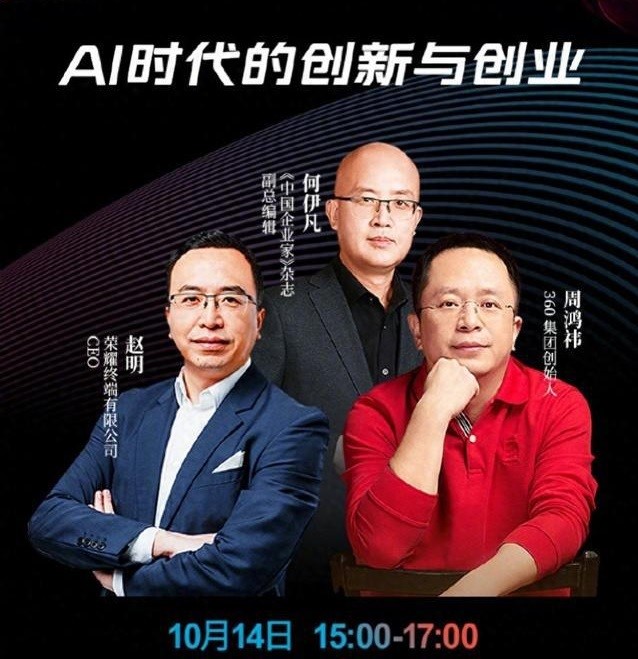In a recent livestream, Zhao Ming, CEO of Honor, and Zhou Hongyi, founder of 360 Group, discussed the future of artificial intelligence in the field of smartphones. This discussion not only attracted the attention of technology enthusiasts, but also provided us with deep insights into the application of AI technology in the mobile phone industry.
First of all, Zhao Ming mentioned that the Honor Magic7 series will be powered by the latest Snapdragon chips, which shows that Honor is working with the world's leading chipmakers to ensure that its devices remain industry-leading in terms of performance. Snapdragon chips are known for their powerful performance in the field of AI and HPC, which will bring significant technical advantages to Honor phones. According to Honor's official announcement, the Magic 7 series of mobile phones will be released on October 30, and the slogan of the press conference is "Witness AI Magic". Zhao Ming today announced one of the highlights of the Honor Magic7 series: it has AI capabilities that are half a year ahead of the industry. Honor also jointly defined the strongest chip in the AI era with Qualcomm, bringing users a "magical" and even "shocking" new experience.

Picture: Honor Zhao Ming and Zhou Hongyi discuss the new trend of the mobile phone industry in the AI era
In the application of AI technology, Zhou Hongyi emphasized the importance of algorithms. He pointed out that efficient algorithms can improve the performance of mobile phones and improve the user's comfort. For example, an AI-based battery management system can intelligently save power according to the user's usage habits and extend the battery life of the phone. This intelligent battery management method is an important direction for the development of smartphones in the future. Eatron Technologies is using artificial intelligence (AI) technology to optimize battery management systems (BMS) to improve battery durability, energy density, and charging speed.
Zhao Ming also mentioned Honor's innovation in AI mobile phones. He gave an example of how Honor uses advanced image recognition technology to automatically optimize photo parameters, so that users can take high-quality photos in different environments. This AI-driven image processing capability is a key factor in improving the user experience. Image recognition technology has developed rapidly in recent years and has become an important application in the field of artificial intelligence. With the continuous development of deep learning technology, the performance of image recognition models is also improving.
The two industry leaders also discussed the use of AI in data encryption and sensitive information management, emphasizing the importance of protecting user privacy while enhancing the experience. They believe that future smartphones will pay more attention to privacy protection, which is an inevitable trend in the development of the industry. According to the White Paper on Personal Information Protection for Mobile Apps released by Deloitte China, the current status of the mobile app industry, the characteristics of personal information protection and the risk analysis of new technologies, as well as the regulatory environment for personal information protection in China, show that the development of privacy protection technology provides the possibility to balance personal information protection compliance requirements and data use needs.
In addition, Zhou Hongyi and Zhao Ming also looked forward to the application of AI in the field of content creation, such as AI painting and AI writing. These tools will dramatically boost creator productivity, giving users unprecedented creative freedom and convenience. The application of AI tools has gradually penetrated into many industries such as game design and film and television production, and has become an important assistant for content creators. In recent years, with the continuous development of artificial intelligence technology, AI painting and AI writing tools have gradually entered the public life and become important assistants in the creative field.
Overall, this live event revealed for us the huge potential of AI technology in the smartphone industry. From improving performance to enhancing user experience to protecting user privacy, the application of AI technology is driving the rapid development of the industry. With the continuous advancement of technology, we have reason to believe that the smartphones of the future will become smarter and better serve the needs of users. According to Canalys, in 2024, 16% of global smartphone shipments were AI phones, and by 2028, this proportion is expected to surge to 54%. This growth is primarily driven by consumer demand for enhanced features such as AI assistants and end-to-side processing.






